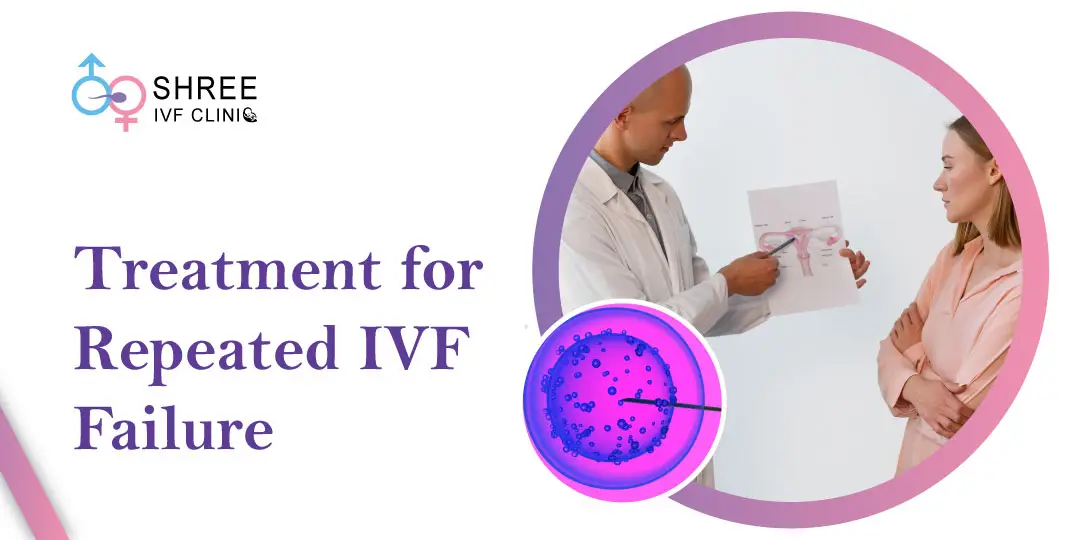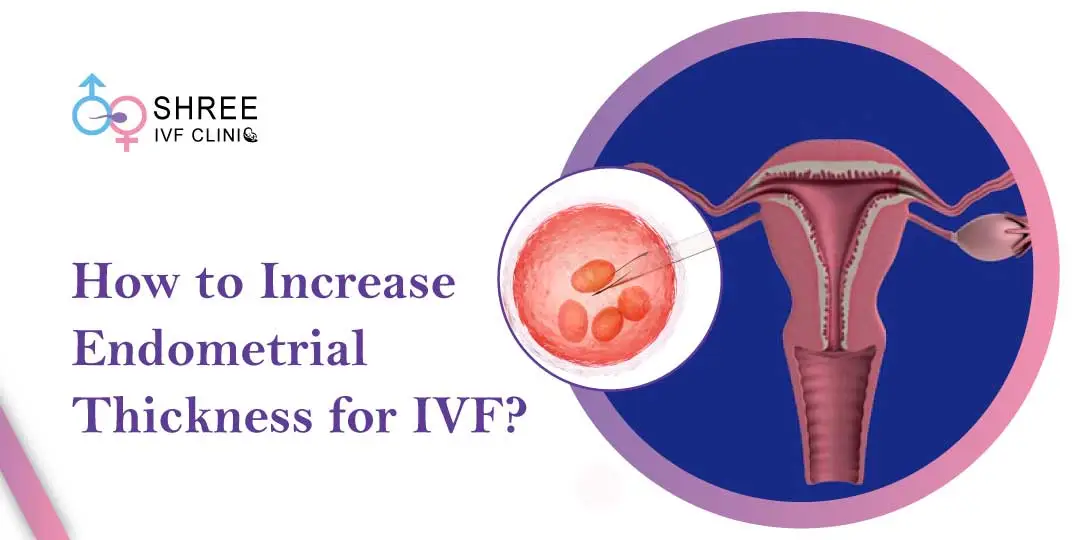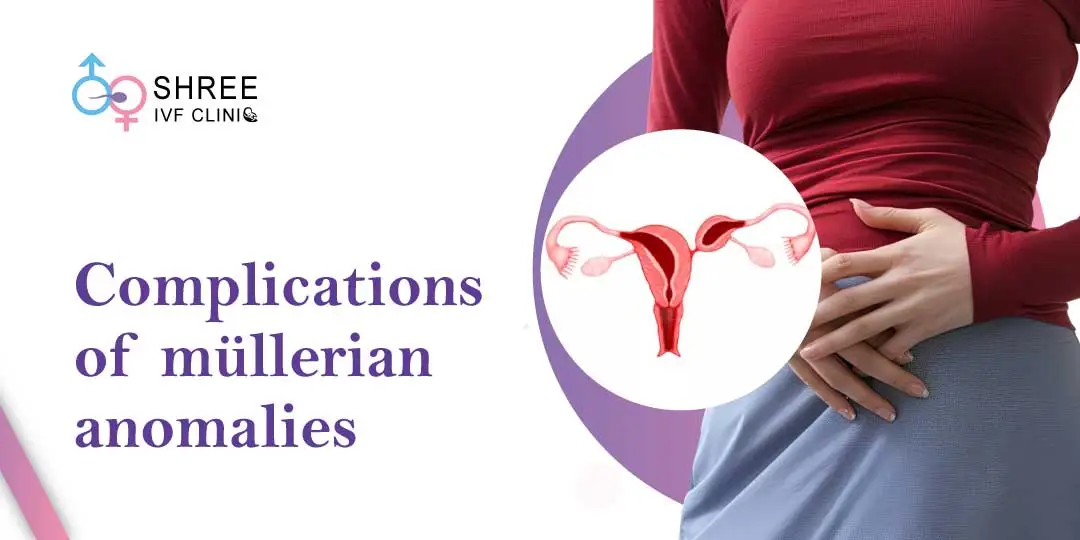What is The Treatment For Repeated IVF Failure?
UPDATED ON 10TH FEB. 2024
Repeated IVF failure is a challenging situation, emotionally and physically draining for the individuals involved. The aspiration for parenthood remains unfulfilled despite the dedication, time, and resources invested in the process.
The emotional impact can be profound, often leading to feelings of despair, anxiety, and even depression. Moreover, the physical toll of multiple hormonal treatments and invasive procedures is considerable, often causing discomfort and fatigue.
It is thus, critical to explore all possible strategies to increase the success rate of IVF and reduce the chances of repeated failures. These can include a thorough assessment of the individual’s health, revisiting the IVF protocol, and possibly considering other options such as egg or sperm donation or surrogacy.

AUTHOR
Dr Jay Mehta
Scientific Director & IVF Specialist with 10+ years of experience
TREATMENT
CONDITION
Failed IVFGET IN TOUCH ON
Why pre-IVF testing is important in repeated failures in IVF cycles?
Pre-IVF testing is crucial in pinpointing possible reasons for repeated IVF failures. It provides important insights into the functioning of the reproductive system, and any underlying issues causing unsuccessful IVF attempts.
Firstly, evaluating ovarian reserve helps to determine the quantity and quality of a woman’s eggs, which are key factors in successful fertilisation and embryo development.
Secondly, a detailed analysis of sperm quality – count, motility, and morphology – can identify any male-factor infertility contributing to IVF failure.
Finally, a thorough assessment of the uterine environment, through tools like ultrasound or hysteroscopy, can reveal any abnormalities like fibroids or polyps, which could impede implantation. Collectively, these tests can guide the revision of the IVF protocol, enhancing the chances of success in subsequent attempts.
Different Treatment Options for Women with Repeated IVF Failure
For women experiencing repeated IVF failures, a range of alternative treatments and approaches can be explored. Alternative Medications like different protocols of stimulating ovaries or the use of supplements may be considered. Certain hormonal treatments, for instance, can optimise the uterine lining for implantation, while specific nutritional supplements can improve egg quality.
Genetic Testing, such as Preimplantation Genetic Screening (PGS) and Preimplantation Genetic Diagnosis (PGD), can also be beneficial. These tests detect genetic abnormalities in embryos before they are transferred to the womb, hence preventing the implantation of embryos with genetic defects which could cause miscarriage or failure of implantation.
Immune System Therapy is another option. It is based on the theory that some women’s immune systems react negatively to the embryo, treating it as an invader and preventing it from implanting. Treatments like Intravenous Immunoglobulins (IVIG) or Intralipids can help in modulating the immune response.
Any alternative options must be discussed in detail with a fertility specialist. Each approach has its pros and cons, and the suitability varies depending on the individual’s specific health condition and personal circumstances.
The Benefits of Consulting with a Fertility Specialist
Consulting a fertility specialist who has experience in treating repeated IVF failure cases offers a host of benefits. They possess the necessary expertise and understanding to evaluate the multitude of factors that could contribute to repeated IVF failures.
Their in-depth knowledge enables them to prescribe personalised treatments and modifications in the IVF protocol, tailored to the individual’s unique circumstances. Furthermore, such specialists can provide access to advanced diagnostic tests and treatment options that might not be readily available elsewhere.
Their ability to interpret the results of these tests accurately ensures that the underlying issues are addressed effectively. Additionally, they can provide emotional support and guidance during this challenging journey, fostering a sense of understanding and empathy that can be immensely reassuring. Ultimately, their specialised knowledge and experience can enhance the chances of successful conception and a healthy pregnancy.
Exploring Assisted Reproductive Technologies: ICSI and PGT-A
Intracytoplasmic Sperm Injection (ICSI) and Preimplantation Genetic Testing for Aneuploidies (PGT-A) represent two advanced assisted reproductive technologies that can significantly increase the chances of successful conception and a healthy pregnancy, particularly in cases of repeated IVF failure.
ICSI, which involves the direct injection of a single sperm into an egg, can be especially beneficial in instances of male infertility, where the sperm may have difficulty penetrating the egg. It ensures fertilization, thereby improving the chances of creating viable embryos for transfer.
PGT-A, on the other hand, involves testing embryos for chromosomal abnormalities before implantation. Chromosomal abnormalities can often prevent the embryo from implanting or lead to miscarriage. By identifying and selecting embryos free of chromosomal abnormalities for transfer, PGT-A can significantly increase the chance of a successful pregnancy.
However, it’s important to note that while both ICSI and PGT-A offer potential benefits, they also carry risks and limitations. The appropriateness of utilizing these technologies should be carefully considered based on the individual’s specific health condition and discussed in detail with a fertility specialist.
The importance of addressing underlying medical conditions that may be contributing to unsuccessful IVF attempts
On top of the advanced technologies such as ICSI and PGT-A, it is pivotal to address the underlying medical conditions that may be contributing to infertility or unsuccessful IVF attempts. Conditions like Polycystic Ovary Syndrome (PCOS) and endometriosis can significantly impact fertility.
PCOS, a condition that affects a woman’s hormone levels, can cause irregular menstrual periods and make it harder for women to get pregnant. Similarly, endometriosis, a disorder where tissue similar to the lining inside the uterus grows outside the uterus, can lead to complications such as blocked fallopian tubes and difficulty conceiving.
Recognizing and treating these conditions can not only enhance the chances of conception but also ensure a healthier pregnancy.
Therefore, it is advisable to have these conditions diagnosed and managed as part of the fertility treatment plan. It’s crucial to have these conversations with your fertility specialist to understand the most suitable course of action for your circumstances.

4062+
353K
” Every individual and couple’s journey is unique, and
finding the right solutions tailored to their specific
circumstances can make all the difference “
The Role of Lifestyle Changes and Complementary Therapies in Improving Overall Health and Fertility Outcomes for Those Undergoing IVF Treatments
Lifestyle changes and complementary therapies can significantly impact overall health and fertility outcomes. Adopting a balanced diet, engaging in regular physical activity, maintaining a healthy weight, and giving up unhealthy habits such as smoking and excessive alcohol consumption can boost fertility and increase the success rates of IVF treatments.
Complementary therapies like acupuncture, yoga, and mindfulness might also enhance conception chances. Acupuncture, for instance, has been theorized to improve blood flow to the reproductive organs and balance hormone levels, potentially improving IVF outcomes.
Mindfulness and yoga can help manage stress and maintain a positive mental state, which is crucial during the challenging IVF process. However, it’s important to discuss any lifestyle changes or complementary therapies with your fertility specialist before starting them, as not all may be suited to your individual circumstances.
In conclusion,
The complexities of human reproduction mean that there are no guarantees when it comes to IVF success. Each individual’s journey is unique and may be influenced by a myriad of factors. However, the multifaceted approach to fertility treatment, which includes diagnosis and management of underlying health conditions, lifestyle modifications, and the use of complementary therapies, offers a beacon of hope for those facing repeated IVF failures.
These avenues may enhance the probability of conception and foster a healthier pregnancy, providing a silver lining for those grappling with the challenges of infertility. Remember, it’s always essential to have open and honest discussions with your fertility specialist to tailor a plan that best suits your circumstances.
AUTHOR
Dr Jay Mehta
Scientific Director & IVF Specialist with 10+ years of experience
TREATMENT
IVFCONDITION
Failed IVF
CALL US 24/7 FOR ANY HELP
GET IN TOUCH ON
Share Article on
Related Readings
Best Time to Have Sex to Get Pregnant Naturally
The best time for sex isn’t fixed; it varies from person to person. The key is to ensure consistent sexual activity, particularly during the fertile window
How to Increase Endometrial Thickness for IVF?
To increase endometrial thickness for IVF, oral estrogens are commonly used. However, in certain situations, additional procedures such as Autologous Stem Cell Therapy of the Endometrium may be required
Are Mullerian Anomalies a Problem For Infertility?
Uncover how Müllerian anomalies affect fertility in our in-depth blog. From diagnosis to treatment, learn actionable insights for informed decisions on your reproductive health journey.








